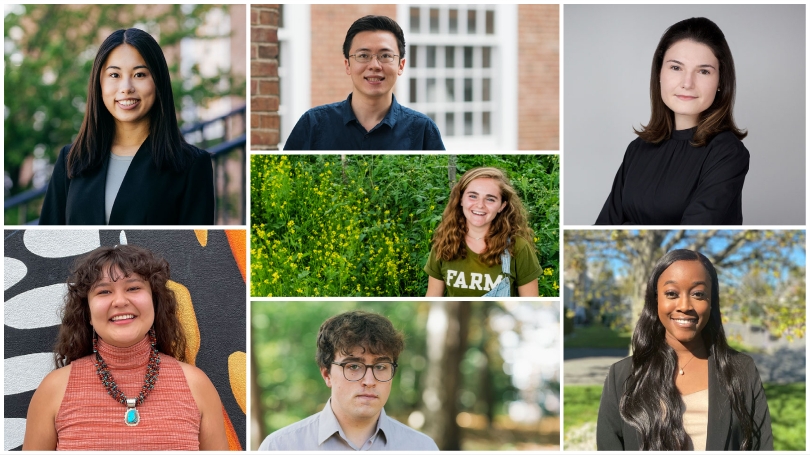
Meet the 2021 Fulbright and DAAD Recipients
Posted on May 12, 2021 by Hannah Silverstein
Four students and three alumni have been offered grants in seven countries.
Four students and three alumni have been offered grants to study or teach around the world—in Germany, Hungary, India, Italy, Kosovo, New Zealand, and Taiwan—through the Fulbright Scholarship and Germany's Deutscher Akademischer Austausch Dienst (DAAD) scholarship program.
Sponsored by the U.S. government, the Fulbright Program is designed to increase mutual understanding between the people of the United States and the people of other nations through international educational exchanges in more than 155 countries. Fulbright awards are available for research, graduate study, and teaching English.
DAAD, the German Academic Exchange Service, supports programs and funding for American and Canadian students, faculty, researchers, and others in higher education to study in Germany, promoting international cooperation.
"Our student applicants did an incredible job navigating the entire process in the online-only world," says Associate Director of Undergraduate Advising and Research Dawn Carey, who, with her colleagues, advises Dartmouth students and alumni through the Fulbright and other national fellowship application processes. "Our yield remained the same as the last two years—a huge accomplishment this year with a 12 percent increase in applications nationally and fewer slots available."
To learn more about how to apply for the Fulbright, DAAD, and other programs, visit Dartmouth's Fellowship Advising Office.
The following students have been offered Fulbright or DAAD fellowships.
Megan Clyne '19
New York, N.Y.
Spanish major; global health minor; premed track
Research/study grant, Hungary
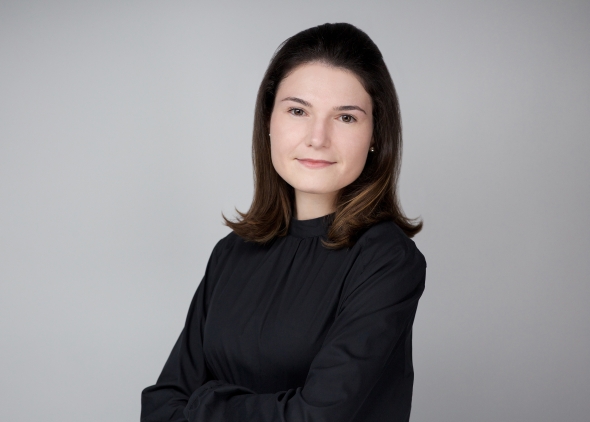
Through Fulbright, Clyne plans to bring both a physiological and a cultural lens to research into diabetes-related ocular complications at Semmelweis University in Budapest.
"I have chosen to pursue my project in Hungary specifically because of the ground-breaking work being conducted there on diabetes-related ocular conditions like corneal fibrosis, which impact many people with diabetes," Clyne says.
Clyne is currently the coordinator of the Emergency Medicine Residency Program at NYU Langone Health/Bellevue Hospital—a role she says has "solidified my interest in pursuing a career in medical education."
She is also a certified domestic violence counselor with the Sharon, Conn.-based Women's Support Services, where she oversees a 24/7 hotline that provides resources and advocacy to women in crisis.
In high school, Clyne studied abroad in Spain and Argentina, and as an undergraduate she returned to Argentina on a Dartmouth Spanish language study abroad program.
"Cultural immersion and understanding have been instrumental to my development and have shaped who I am as a student, researcher, advocate, and friend," she says. "These experiences reinforced for me the importance of walking a mile in someone else's shoes in order to gain a real understanding of who they are and what drives them. I believe that principle also holds true in evaluating how to deliver the most effective medical care to others."
At Dartmouth, she found ways to combine her passion for language and culture with her interest in global health, writing her Spanish thesis on "the therapeutic benefits of writing in confronting illnesses like diabetes," she says.
"I am driven by a desire to evaluate chronic health challenges holistically, exploring the pathways of disease development and the factors that contribute to progression," she says. "I'm particularly interested in understanding how factors like culture, lifestyle, geography, and education affect the health of both those afflicted as well as those who care for them."
Nia Gooding '20
Princeton, N.J.
Government major
Research/study grant, Kosovo
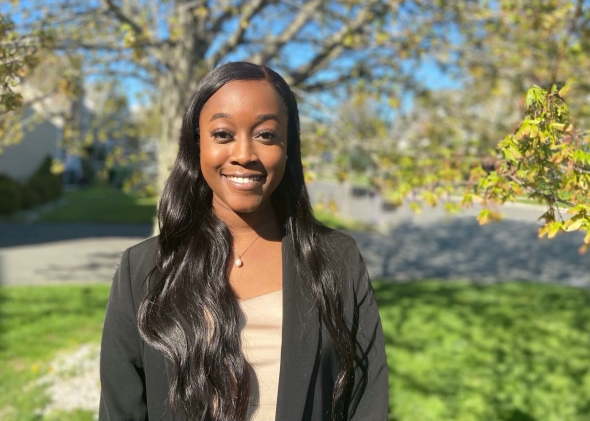
Gooding first traveled to Kosovo in the summer of 2019 through a Global Health Policy Lab internship funded by the John Sloan Dickey Center for International Understanding and the Rockefeller Center for Public Policy. In Pristina, she conducted policy research with the Kosovo Ministry of Health and the nonprofit Action for Mothers and Children.
Her Fulbright research will build on this work—this time focusing on why so many Kosovar mothers give birth by cesarean section.
"I see some similarities in the health outcomes of Kosovar mothers and African American mothers," says Gooding, who describes herself as a first-generation Caribbean-American.
"Maternal and child health is an important topic to me as a Black woman, because so many Black mothers in the U.S. disproportionately suffer from high rates of morbidity and mortality compared to other women. I want to do my part to help Kosovo's mothers and children be as healthy and safe as possible in the same way that I want to work to help those in my own community."
Gooding came to Dartmouth planning a career in medicine, but discovered an interest in global health and public policy. As a Dickey Center Global Health Fellow, she says, "I learned that many of the problems present in health systems across the globe are complex, and require interventions that can be made by implementing policy changes. That pushed me to consider developing my own policy solutions to the problem of disparate access to high-quality healthcare among women."
After Fulbright, Gooding plans to pursue law school and a master's in global health law. "I'm excited to continue working to improve global health care systems by advocating for evidence-based policy interventions," she says. "I hope to gain a lot of experience in this arena as a Fulbright scholar."
Alexandria Hawley '19
Farr West, Utah
Anthropology major; Native American studies minor
Research/study grant, New Zealand
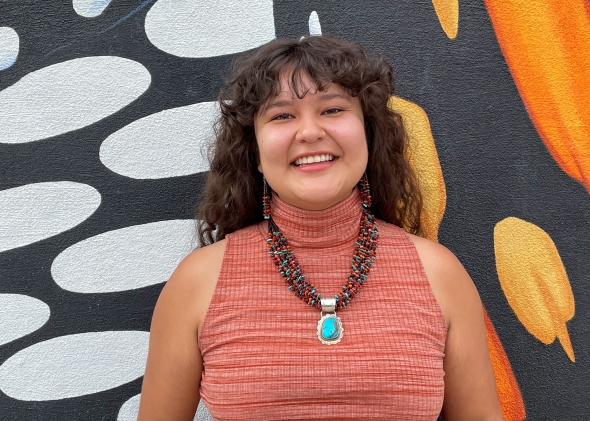
Through Fulbright, Hawley will pursue a master of heritage conservation at the University of Auckland.
"I am very interested in museum work and Indigenous art, and in art as a wellness practice and a healing practice," she says.
A member of the Navajo Nation, Hawley says she wants "to gain Maori and other Pacific Indigenous perspectives on the museum and how we engage with it—to hear perspectives beyond of the U.S. on issues of ownership and collaboration. I really want understanding healing through creativity and what that means to different communities. And also, just to be around art and beautiful things."
An anthropology foreign study program brought Hawley to New Zealand in 2018, and she returned for a Native American and Indigenous Studies Association conference. "I ended up making some amazing friends in that short time span," she says.
Hawley discovered anthropology in an introductory course taught by Associate Professor Laura Ogden. "It was the first class I felt like I could really speak up in," she says. "I was drawn to the intersection of art and people—how cultures come together or differ. It's powerful."
At Dartmouth, Hawley was an undergraduate adviser for the Native American House and a fellow of the Mellon Mays Undergraduate Fellows program, which supports students from minoritized backgrounds in pursuing careers in academia. Through Mellon Mays, she completed a senior capstone project on Navajo maternal-child health. "That was my undergraduate passion that set me up for Fulbright," she says. "It's humbling to have been selected. It is such an honor and a privilege."
Since graduation, she has worked for the United Way of Northern Utah, currently as the early childhood coordinator with the Welcome Baby program.
Rachel Kent '21
Indianapolis, Ind.
Geography major; environmental studies and Spanish minor
Research/study grant, Italy
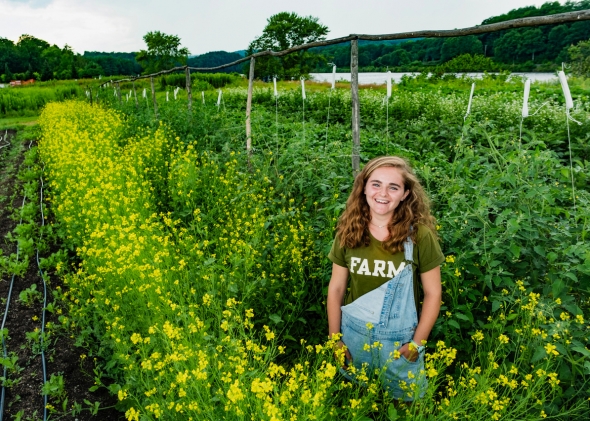
Kent is driven by a passion for "feeding others in a way that supports life for all—all humans and all other living beings on this earth," she says.
She received a Stamps Scholarship to pursue independent research into small-scale farms and what she calls "geographies of care." Through Stamps, she has traveled to farms to conduct ethnographic research that "uses these place-based experiences to explore how we can create relations that nourish human and non-human lives through agricultural practices, particularly as a counter to the destructive tendencies of capitalist agriculture," she says. This work forms the basis of her geography thesis.
She discovered a love for geography in a class taught by Assistant Professor Patricia Lopez, who served as her faculty mentor for Stamps and is now her thesis adviser. "Thanks to her, I've learned how to do research in a way that allows me to be a human first, researcher second," Kent says.
At Dartmouth she has been deeply involved in sustainability and the outdoors through the Dartmouth Outing Club and the Organic Farm, and is an organizer with the Dartmouth Student Union, a group that provides advocacy and mutual aid for students.
"I would not be the person I am today without my communities in the DOC, Dartmouth Sustainability, and the Dartmouth Student Union," she says.
Through Fulbright she plans to pursue a master of gastronomy at the University of Gastronomic Sciences in Pollenzo, Italy. "It's a perfect fit for my interests," Kent says of the program, which is connected to the international nonprofit Slow Food. "In addition to classes exploring topics like food anthropology, sustainability, philosophy, and sovereignty, the program supports interactions with the vibrant local food community and immersive study trips to food systems around the world."
Alexander Soong '21
Baltimore, Md.
Italian studies major; Asian society, culture, and languages (ASCL) minor
English teaching assistant grant, Taiwan
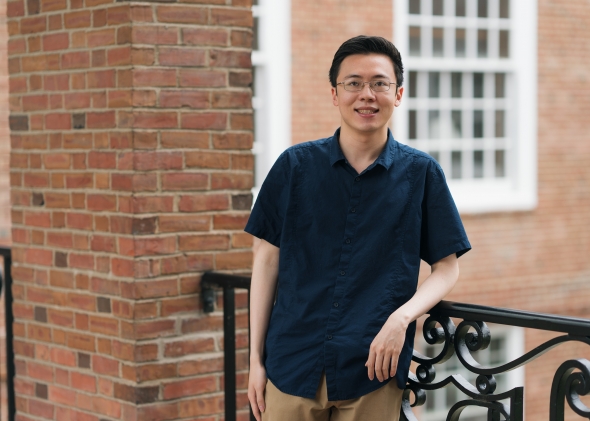
"I am passionate about teaching and languages, and this opportunity combines both," says Soong, who aspires to a career in educational leadership.
"I believe that every student deserves an excellent education: one where they can unlock their full potential, fulfill their dreams and aspirations, and climb the ladder of opportunity through hard work and determination," he says.
Soong says Dartmouth gave him the opportunity to immerse himself in courses in the Italian, Spanish, and ASCL departments, contributing to his curiosity about languages and cultures. "Taking several education courses at Dartmouth has reaffirmed my desire to make a positive impact in the education field."
A language study abroad program in Rome "showed me the importance of being flexible, resilient, adaptable, and adventurous—all of which I will bring with me to Taiwan."
Among his Dartmouth activities, Soong is president of the Dartmouth Asian Organization, has worked as an Italian drill instructor, has been a peer academic enrichment intern with the Academic Skills Center, and is a member of Zeta Psi fraternity. Last summer, as a virtual Teach for America Accelerate Fellow, he designed a science curriculum and mentorship program to engage under-resourced middle schoolers outside the classroom.
Of receiving the Fulbright, he says, "I owe this wonderful opportunity to my family and the Dartmouth community—the students, faculty, and staff who have been essential to my growth as a student and as a person."
Sunny Tang '21
Carlisle, Mass.
Neuroscience major; anthropology minor
Research/study grant, India
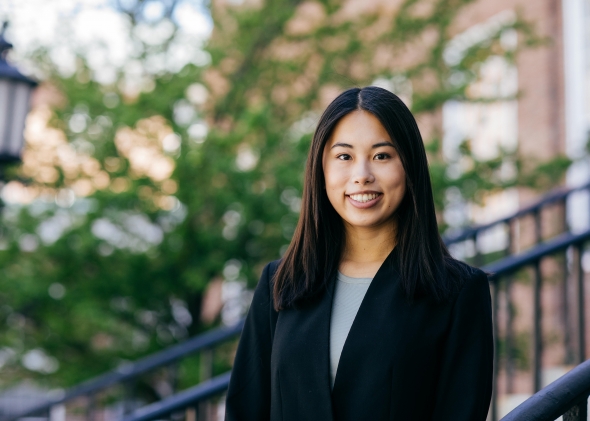
In the summer after her first year at Dartmouth, Tang worked as a research intern with Project Prakash—a Cambridge, Mass.-based organization that treats preventable blindness in children in India. The experience, analyzing date in the organization's MIT lab, made her want to learn more about disabled communities, she says.
The subject is personal. "My grandfather was paralyzed, and growing up seeing not just the physical but the social and mental effects that had on him made me want to learn more about how disability affects people in their lives," says Tang, who plans a career in medicine.
Her Fulbright proposal was to conduct ethnographic interviews with members of the disabled community in India. However, the COVID-19 pandemic has made the project uncertain, and Tang has decided to pursue a management consulting position with Bain & Company in Boston instead before applying to medical school.
At Dartmouth, Tang has worked as a research assistant in the Personal Perception Lab, through which she is currently researching racial and personal familiarity effects for her senior thesis. She also traveled to New Zealand on an anthropology foreign study program.
Among her undergraduate activities, she is president of the women's water polo team, a sport she picked up as a first-year student. "It's a very supportive community—a way to meet people from different corners of campus," she says.
She is also an outreach coordinator for Give Essential, a student volunteer organization that helps provide supplies and services for essential workers during the pandemic.
Tang calls being offered the Fulbright "validating. It was good to hear that my interests matter to others."
Stephen Valeri, Guarini '21
Buffalo, N.Y.
Comparative Literature Program
DAAD Scholarship, Germany
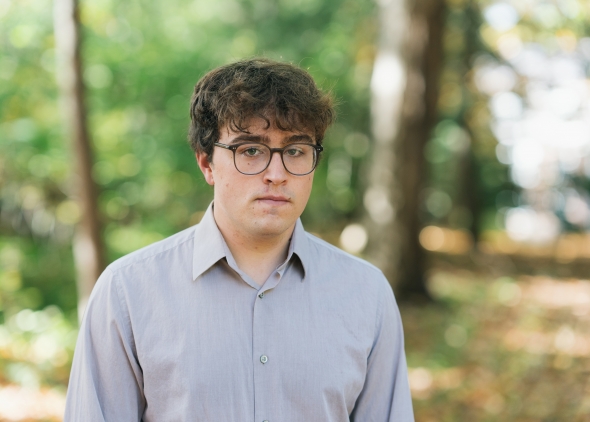
A graduate of Reed College and a current master's degree student in the Comparative Literature Program, Valeri first picked up James Joyce's Ulysses at age 16.
"I totally didn't understand it, just its reputation," he says. "It seemed exciting and daunting—and exciting for being daunting."
Now, through a research grant from the Zurich James Joyce Foundation, he plans to study how Joyce coins new words in his novels, spending two months in Zurich examining manuscripts of Ulysses and Finnegans Wake.
Then, through DAAD, he will work with Joyce expert Elizabeth Bonapfel and Hans Walter Gabler, editor of the definitive corrected edition of Ulysses, at Ludwig Maximilian University of Munich, tracking Joyce's coinages of new words over the course of his novels.
"Finnegans Wake, Joyce's final work, is notorious for including approximately 50,000 invented words drawn from over 60 languages," Valeri says. "I'm interested in how he intervenes in the languages that he uses to produce, so prolifically, so many invented words."
Valeri says Dartmouth's comparative literature program has provided "strong professional preparation in the field that has been very useful" as he prepares to apply to PhD programs.
"It's a very supportive program, and there are a number of professors whose work is in line with mine," he says—including his adviser Lawrence Kritzman, the Pat and John Rosenwald Research Professor in the Arts and Sciences, who chairs the program. "He's one of the world's leading experts on French poststructuralism, which is something I incorporate heavily into my thesis," Valeri says.
Of the DAAD, Valeri says, "I'm grateful for their generous support of the humanities and their understanding of the humanities' intrinsic value to society."
Hannah Silverstein can be reached at hannah.silverstein@dartmouth.edu.